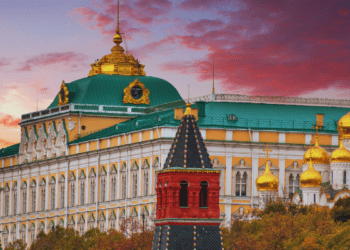February 6, 2012 – Jack Granatstein, a member of MLI’s Research Advisory Board, writes a monthly column for the Canadian Defence & Foreign Affairs Institute. This month, he writes about not needing the UN’s permission “to determine if Ottawa can act with its friends against a threat to peace.” The full column below:
We don’t need the UN’s permission
By Jack Granatstein, Canadian Defence & Foreign Affairs Institute, February 2012
Let’s consider a not-so-hypothetical scenario: suppose that the nation of Bafflegab, awash with oil and located at a strategic choke point on the globe, is rapidly developing nuclear weapons while denying that it is doing so.
“We are just enriching uranium to produce electricity and for medical research,” says the president.
At the same time, Bafflegab’s leaders support anti-Western and anti-Israel terrorist groups, prop up dictatorships in the Middle East, Asia, and Latin America, and threaten Israel and the West with military preparations and increasingly hostile rhetoric.
The Western response is to try to negotiate an end to nuclear weapons development. These efforts fail, and a slow ratcheting-up of economic sanctions begins, accompanied by the beginnings of military readiness. After one violent terrorist incident, after a Western naval officer lets loose an anti-ship missile and sinks a small Bafflegab speedboat, general hostilities seem poised to begin. The issue goes to the United Nations Security Council where Russia, backed by China, an eager purchaser of Bafflegab oil, vetoes any action. The General Assembly does nothing. Following agonizing discussions, the Western nations and Israel go to war. The President of the United States declares that it is in the vital interests of his nation to act, the UN veto notwithstanding.
What does Canada do? Our present political leaders — most recently the Minister of National Defence, Peter MacKay, and the Parliamentary Secretary for Foreign Affairs, Deepak Obhrai — have said that Canada requires a UN Security Council resolution before it will intervene in Syria and, by implication, everywhere. Of course, this rationale did not stop Canada from sending its CF-18 aircraft to bomb Serbian targets during the Kosovo intervention in 1999, the sole authority then being decisions made by NATO. On the other hand, prime minister Jean Chrétien in 2003 claimed that UN approval was essential — and lacking — at the beginning of the Iraq War when Canada remained on the sidelines. (Note that some 50 nations supported the U.S. in the Iraq War, notwithstanding the absence of a UN resolution.) Now the Chrétien “doctrine” seems to be accepted as gospel by all the parties in Parliament. Thus Canada’s friends ready themselves to fight Bafflegab, while Ottawa sits on its hands, all action checked by Russian and Chinese vetoes.
Does this make any sense? To the Canadian true believers in the United Nations, every military response unauthorized by the UN is illegal. To pragmatists, the UN is a weak reed, its potential as a future world government hampered by the clash of Great Power interests.
The pragmatists are leery of a Security Council that gives China and Russia the right and opportunity to paralyze strong action whenever their national interests direct. The Chinese and Russians are not acting out of a humane concern for the people of Bafflegab, of course. They cast their vetoes to protect and advance their oil supplies and their national interests. They have every right to do so.
But so do we. The test for every Canadian response should be the same: Will action protect or advance our national interests? Bafflegab’s oil may not be shipped to Canada in any quantity, but its sponsored terrorism is a threat to Canada and Canadian citizens around the world. Its control of a vital waterway can interfere with the global trade on which our importers and exporters depend. When Bafflegab gets nuclear weapons, and it will, the dangers will only multiply. And our allies, their vital interests in peace, security, and commerce also under threat, believe that military action is necessary. Canada’s national interests in such circumstances suggest that we follow the Kosovo example rather than the Chrétien “doctrine.”
Very simply, no nation should ever consent to having its hands tied by a supranational organization when its vital interests are threatened. The inherent right to self-defence and the protection of vital national interests must override a UN Security Council veto. The peace and security of the world is just such a Canadian vital interest, as is the danger posed by the spread of nuclear weapons to even more unstable, messianic nations. Our interests must not be held hostage to a UN Security Council resolution.
Somehow without truly understanding how this happened, the Canadian government slipped into the position that UN authorization is a requirement for action. No one wants Canada to go tearing off looking for war in every corner of the map. But no one should think that only a rarely united Security Council must determine if Ottawa can act with its friends against a threat to peace. We need public debate on this point now, before the Bafflegab situation, before the Iranian situation, blows up in our face.
J.L. Granatstein is a senior research fellow of the Canadian Defence and Foreign Affairs Institute.





